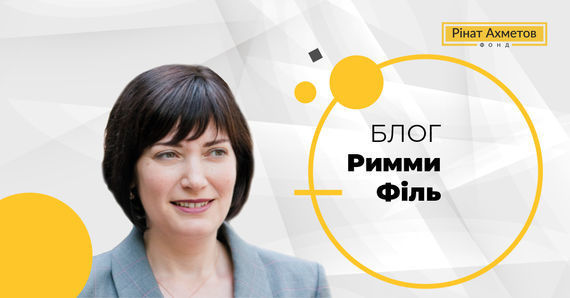Do no harm. BLOG by Nadiia Kondratiuk, the expert of Rinat Akhmetov Foundation’s «Mentorship» project

Since childhood, my mother taught me that when you are visiting somebody, you should take a gift with you. If you are visiting people with children, you should take sweets with you. I think that I am not alone to follow these traditions, which have been instilled in us. Sweets, cakes, pies or chocolate - depending on the number of children and on how close your relationship is. Since I was a kid, I could never afford to come to someone’s place empty-handed (and I still cannot). There were no questions about the choice - what else should I give to children but sweets?
I began to understand that there is something wrong with these traditions when I became a mother myself and good people began to treat my little daughter with those delicious sweets. And when at the age of two her teeth began to decay, it took us long to wait until her milk teeth are replaced by the permanent ones, because milk teeth are difficult to be healed. Unfortunately, this large amount of sweets has affected not only the health of her teeth. Thus, I launched an active explanatory campaign among my friends: if you give a present, let it be healthy and useful, even if it is not bright. And then there was another level of preventive care: “Please, consult me before giving anything to my child”. And when a son was born in our family, chocolate, candies and other sweets became rare guests on our table.
I experienced something different when my family lived in Sloviansk. It was in 1998, and the standards of living and financial possibilities of this glorious city inhabitants were very low. A nine-year-old girl, who was visiting us with her parents, came to the kitchen with me. Being a good hostess, I had homemade cakes, because I was going to receive guests. I offered her a piece before the tea time. My heart was too full for words when she said: “No, thank you, I have never eaten this, you’d better give me some black bread with vegetable oil and salt.” And then she said it was a real delicacy for her and she only ate it on Sundays or when her mother had money.
This is not about social status or finances. This is not about helping the poor or disadvantaged. This is about the value and usefulness of food as such. This is about different children brought up in different life conditions, about our imagination and understanding what to present children with. This is about children being brought up in residential institutions, about our contribution to their lives, health and future, about their different living conditions.
It's not a secret that the provision of a residential institution depends on the number of sponsors and remoteness from a large city. According to statistics, during the holidays, every child receives up to 25 candy gifts from various benefactors. How does this affect their children's bodies? How does this generally affect their attitude to the adults visiting them?
You cannot know all the health features of your ward. You will not be responsible for his or her treatment, if suddenly something happens. There are clear and pragmatic rules of conduct for those who really want to visit children in every boarding school or children's institution. These rules do not necessarily resemble our family ones, but they come out of experience, responsibility and “do no harm” postulate.
Every time you bring material values as a present, you become one of those who form the “orphan syndrome” in a child. It's when he or she feels poor and unhappy, and everyone should feel sorry for them and have to give them everything they need because they are orphans. They feel they do not need to work or make efforts to get something – because an orphan shouldn’t have to.
Children quickly learn to manipulate, to get what they want and to use adults as an “ATM”. All they have to do is to excite pity in an adult so that the adult will give more and more material values. A child becomes a social parasite. This is just a dead-end life scenario, if we talk about adaptation to an independent adult life.
Once I met a 42-year-old adult who founded a charitable foundation for helping orphans, but had an “orphan syndrome” himself. He persuaded me that he was entitled to free participation in the conference just because he was an orphan. He thought that although he was an adult himself, the society and people with parents were obliged to help him financially.
Every time you bring food or material values to your wards at their request or on your own accord, you act against the rules established for all. You harm not only yourself, but also the Mentoring reputation on the whole. One day it may happen so that the institution's doors will be closed not only for you, but also for the others. Be wise and conscious Mentors. As a Mentor, you should observe the discipline of visiting your ward, even if it seems heartless and wrong to you. Keep in touch with the staff of the establishment, respect those who work there. Think about how your gifts are perceived by other children, both those who have mentors and those who have none. Think of what their feelings may be like.
You will definitely lead the educated person by your own example. After all, respect for adults and rules is a very complicated thing, associated with the restriction of one’s own whims and desires. Respect for a stranger is an important component in a person’s behaviour. Children learn to respect following the example of those who are close to them. They learn by an everyday example of responsible adults – their Mentors.




